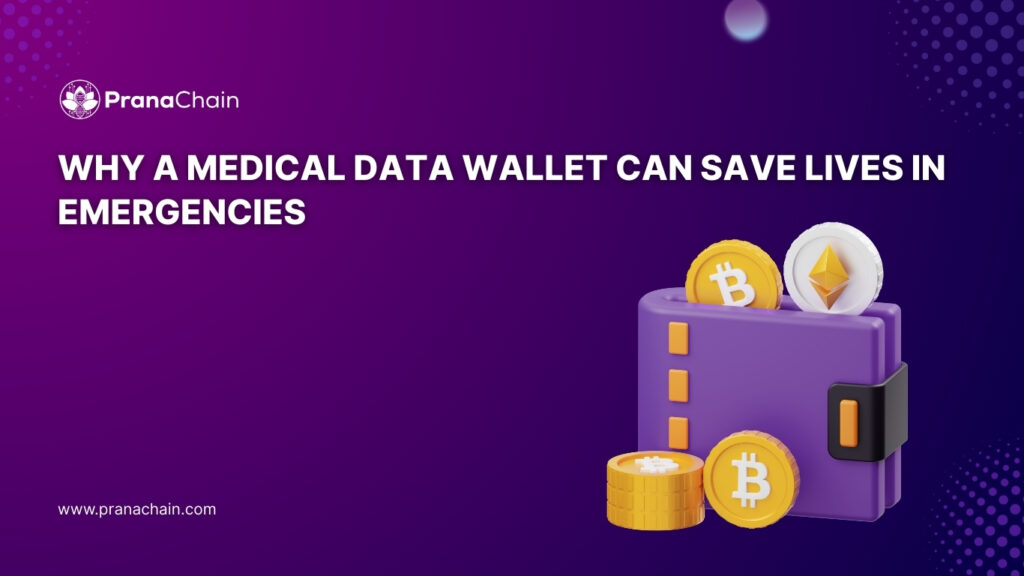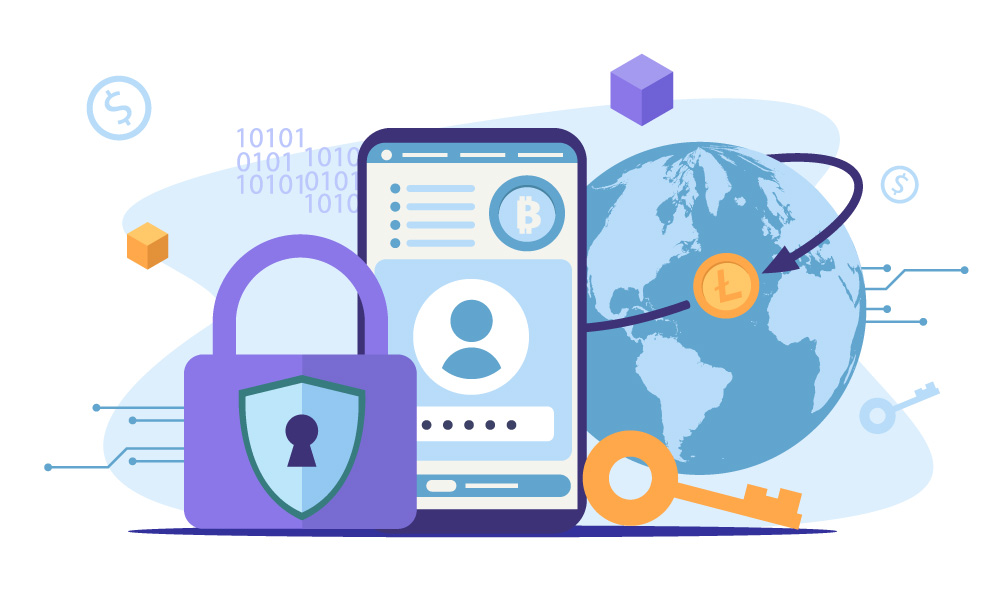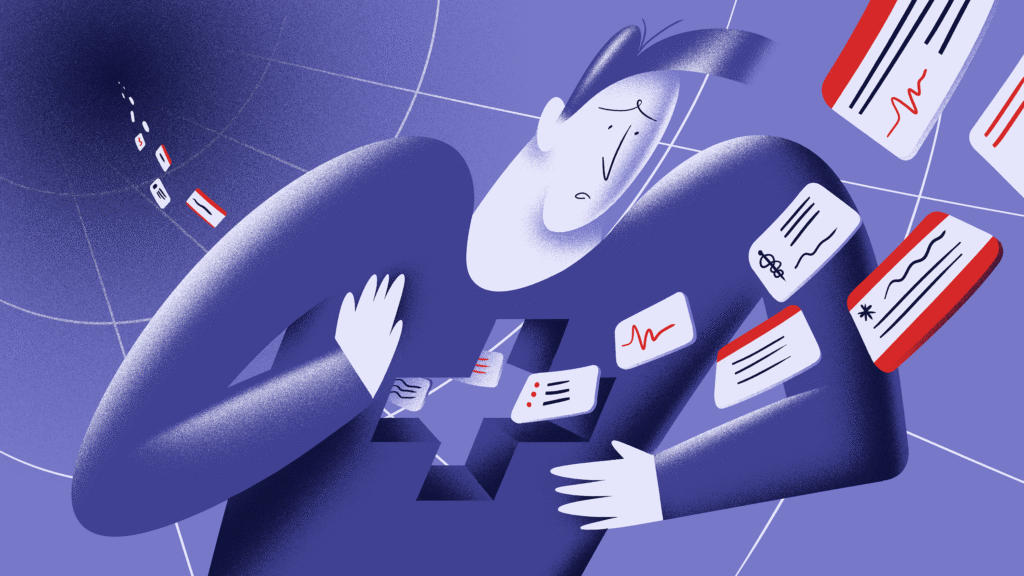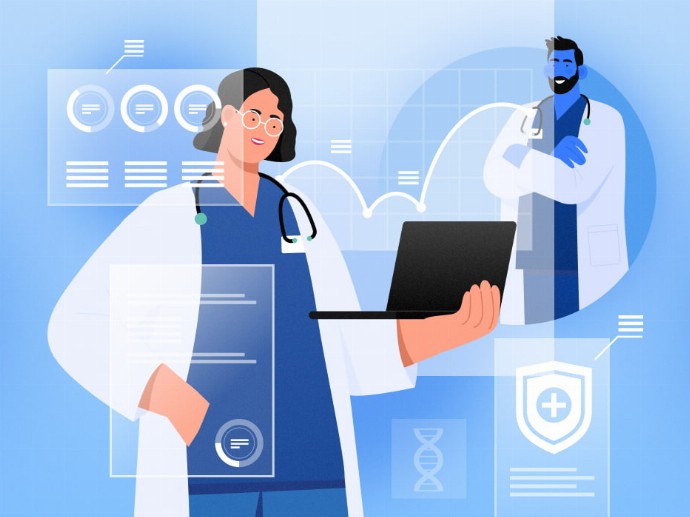
Introduction: When Every Second Counts
Picture this: a 35-year-old man is rushed into the emergency room after a road accident. He is unconscious. Doctors need to know his blood type, allergies, and medical history before administering treatment. But his records are scattered across clinics, his family is unreachable, and the hospital’s database does not contain his information.
In situations like this, minutes of delay can mean the difference between life and death. According to the World Health Organization, nearly 2.6 million people die annually due to medical errors, many of which are linked to missing or inaccessible health data.
A medical data wallet offers a powerful solution. It gives patients the ability to store their health records securely on the blockchain and share them instantly during emergencies.
What Is a Medical Data Wallet?

A medical data wallet is a digital application that allows patients to carry their health records securely in one place. Think of it as a passport for your health information. Instead of relying on hospitals or government databases, patients own their records and decide who can access them.
Unlike centralized systems that are prone to breaches, delays, and silos, PranaChain’s medical data wallet leverages blockchain technology to ensure:
- End-to-end encryption
- Tamper-proof records
- Patient-controlled permissions via smart contracts
- Cross-platform interoperability
The Emergency Data Access Challenge Today

Healthcare systems worldwide face the same critical problem: emergency data is not always accessible when it’s needed most.
Some of the biggest challenges include:
- Siloed records: Data spread across multiple hospitals, clinics, and labs.
- Paper-based systems: Outdated records that slow down care.
- Patient unavailability: In emergencies, patients may be unconscious or unable to communicate.
- Privacy hurdles: Regulations like HIPAA and GDPR create extra steps, which delay urgent access.
A report by the National Academy of Medicine found that up to 80% of serious medical errors occur due to miscommunication or a lack of timely patient information.
This is the problem a medical data wallet is designed to solve.
How a Medical Data Wallet Saves Lives

A blockchain-powered wallet can transform emergency care by providing secure, instant, and authorized access. Let’s look at real-world scenarios:
1. Car Accident Case
A patient is rushed into the ER after a crash. He is allergic to penicillin, but he cannot communicate. Through a medical data wallet, doctors instantly access his allergy history and avoid administering a harmful drug.
2. Chronic Condition Emergency
A woman with diabetes experiences hypoglycemia shock at work. Colleagues call for help, and paramedics use her digital wallet to quickly access her medical history and insulin usage patterns, ensuring timely and safe treatment.
3. International Travel Emergency
A tourist suffers a heart attack abroad. Instead of struggling with language barriers and paperwork, his medical data wallet provides foreign doctors with instant access to his health history, saving valuable time.
These are not futuristic scenarios. They are daily emergencies where lives can be saved through faster access to trusted medical data.
Why Blockchain is the Backbone

A medical data wallet powered by blockchain ensures that records are not only available but also secure. Here’s why blockchain is essential:
Traditional Systems | Blockchain-Powered Wallets |
Records stored in isolated hospital databases | Records stored on decentralized blockchain network |
Risk of tampering or unauthorized access | Immutable, tamper-proof audit trails |
Patients depend on hospitals for access | Patients own and control access |
Limited interoperability between hospitals | Global interoperability across systems |
With blockchain, every action, whether it’s access, sharing, or updating, is logged and transparent. This builds trust and ensures accountability.
The Future of Emergency Healthcare with Medical Data Wallets

Imagine a future where your smartwatch detects abnormal heart activity and automatically sends an alert to emergency responders. By the time paramedics arrive, your medical data wallet has already shared vital information such as your medication, allergies, and recent lab results, so treatment begins immediately.
This is not far away. With advancements in IoMT (Internet of Medical Things) devices, wearables, and smart contracts, medical data wallets will become an integral part of healthcare systems worldwide.
PranaChain is already building toward this future by:
- Enabling patient-first ownership of data
- Integrating with IoMT devices and digital health platforms
- Creating token-powered incentives for ethical data sharing
- Designing privacy-first systems aligned with HIPAA and GDPR
Conclusion
Emergencies are unpredictable. Delays caused by inaccessible or fragmented health data can be fatal. A medical data wallet ensures that your information is always available, secure, and under your control.
With PranaChain, patients no longer depend on outdated systems or institutional silos. Instead, they hold their health data in their own hands, ready to save lives when it matters most.
PranaChain is building this future today: patient-first, privacy-focused, and life-saving.

